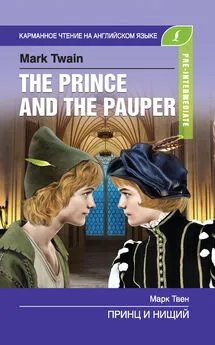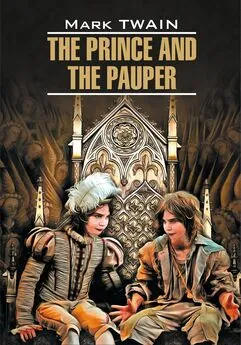Oscar Wilde - The Happy Prince and Ohter Tales
- Название:The Happy Prince and Ohter Tales
- Автор:
- Жанр:
- Издательство:неизвестно
- Год:неизвестен
- ISBN:нет данных
- Рейтинг:
- Избранное:Добавить в избранное
-
Отзывы:
-
Ваша оценка:
Oscar Wilde - The Happy Prince and Ohter Tales краткое содержание
The Happy Prince and Ohter Tales - читать онлайн бесплатно полную версию (весь текст целиком)
Интервал:
Закладка:
The eyes of the Happy Prince (глаза Счастливого Принца) were filled with tears (были наполнены слезами) , and tears were running down his golden cheeks (и слезы катились: «бежали вниз» по его золотистым щекам) . His face was so beautiful in the moonlight (его лицо было настолько прекрасным при лунном свете) that the little Swallow was filled with pity (что маленький Ласточка преисполнился жалостью; to fill — наполнять, переполнять) .
`Who are you (кто ты) ?' he said.
`I am the Happy Prince.'
chimney ['t∫imni ] tear [tiə ] pity ['piti ]
`What is the use of a statue if it cannot keep the rain off?' he said; `I must look for a good chimney-pot,' and he determined to fly away.
But before he had opened his wings, a third drop fell, and he looked up, and saw — Ah! what did he see?
The eyes of the Happy Prince were filled with tears, and tears were running down his golden cheeks. His face was so beautiful in the moonlight that the little Swallow was filled with pity.
`Who are you?' he said.
`I am the Happy Prince.'
`Why are you weeping then (почему же ты тогда плачешь) ?' asked the Swallow (спросил Ласточка) ; `you have quite drenched me (ты совсем промочил меня насквозь /своими слезами/; to drench — пропитывать влагой, смачивать) .'
`When I was alive (когда я был жив) and had a human heart (и /у меня/ было человеческое сердце) ,' answered the statue (ответила статуя) , `I did not know what tears were (я не знал, что такое слезы) , for I lived in the palace of Sans-Souci (потому что я жил во дворце Сан-Суси; sans-souci — фр. беспечный, беззаботный; тж. Sanssouci — летний дворец Фридриха Великого, Короля Прусского в Потсдаме под Берлином, по красоте соперничающий с Версалем) , where sorrow is not allowed to enter (куда печали/горю не позволено = запрещено входить) . In the daytime I played with my companions in the garden (днем я играл со своими товарищами в саду) , and in the evening I led the dance in the Great Hall (а вечером я был первым на танцах в Большом Зале; to lead the dance — вести, возглавлять танец; играть главную роль, to lead (led) — вести, руководить, dance — танец) . Round the garden ran a very lofty wall (вокруг сада тянулась очень высокая стена = сад был обнесен очень высокой стеной; to run (ran, run) — бежать, lofty — очень высокий) , but I never cared to ask (но я никогда так и не удосужился спросить; to care — заботиться, беспокоиться, иметь желание) what lay beyond it (что находится/расположено за ней; to lie (lay, lain) — лежать) , everything about me was so beautiful (все вокруг меня было настолько прекрасным) .
drench [drent∫ ] sorrow ['sorəυ ] beyond [bi'jond ]
`Why are you weeping then?' asked the Swallow; `you have quite drenched me.'
`When I was alive and had a human heart,' answered the statue, `I did not know what tears were, for I lived in the palace of Sans-Souci, where sorrow is not allowed to enter. In the daytime I played with my companions in the garden, and in the evening I led the dance in the Great Hall. Round the garden ran a very lofty wall, but I never cared to ask what lay beyond it, everything about me was so beautiful.
My courtiers called me the Happy Prince (мои придворные называли меня Счастливым Принцем; to call — звать, называть) , and happy indeed I was (и я действительно был счастлив) , if pleasure be happiness (если удовольствие и есть счастье) . So I lived (так я жил) , and so I died (и так я умер) . And now that I am dead (и теперь, когда я мертвый) they have set me up here (они вознесли меня сюда: «они поставили меня здесь высоко») so high that I can see (так высоко, что я могу видеть) all the ugliness and all the misery of my city (всю мерзость и все страдания моего города; ugly — безобразный, уродливый, ugliness — уродство, омерзительность) , and though my heart is made of lead (и, хотя мое сердце и сделано из свинца) yet I cannot choose but weep (я не могу не плакать; to choose — выбирать, иметь свободу выбора) .'
`What, is he not solid gold (вот как, разве он не из чистого/цельного золота; solid — твердый; чистый, однородный) ?' said the Swallow to himself (подумал Ласточка про себя) . He was too polite (он был слишком вежливым) to make any personal remarks out loud (чтобы произносить такие замечания вслух; personal — личный, задевающий личность, loud — громко) .
pleasure ['pleζə ] misery ['miz(ə)ri ] lead [led ]
My courtiers called me the Happy Prince, and happy indeed I was, if pleasure be happiness. So I lived, and so I died. And now that I am dead they have set me up here so high that I can see all the ugliness and all the misery of my city, and though my heart is made of lead yet I cannot choose but weep.'
`What, is he not solid gold?' said the Swallow to himself. He was too polite to make any personal remarks out loud.
`Far away (/там/, далеко) ,' continued the statue (продолжала статуя) in a low musical voice (тихим мелодичным голосом; low — низкий) , `far away in a little street (далеко, на маленькой улочке) there is a poor house (/стоит/ один бедный дом) . One of the windows is open (одно из окон открыто) , and through it (и сквозь него = и в нем) I can see a woman seated at a table (и вижу: «могу видеть» женщину, сидящую за столом) . Her face is thin and worn (ее лицо худое и изможденное; to wear (wore, worn) — носить, быть одетым, worn — изношенный, усталый) , and she has coarse, red hands (и руки у нее загрубевшие, красные) , all pricked by the needle (все исколотые иглой; to prick — колоть) , for she is a seamstress (от того, что она швея; seam — шов) . She is embroidering passion-flowers (она вышивает страстоцветы; passion — страсть, пыл, flower — цветок) on a satin gown (на атласном платье) for the loveliest of the Queen's maids-of-honour (для прекраснейшей из фрейлин Королевы; maid — служанка, девушка, honour — честь, почет) to wear at the next Court-ball (/которое та/ наденет на ближайший придворный бал; next — следующий; court — двор) .
continue [kən'tinju: ] coarse [ko:s ] seamstress ['si:mstris ]
maid of honour["meidəv'onə ]
`Far away,' continued the statue in a low musical voice, `far away in a little street there is a poor house. One of the windows is open, and through it I can see a woman seated at a table. Her face is thin and worn, and she has coarse, red hands, all pricked by the needle, for she is a seamstress. She is embroidering passion-flowers on a satin gown for the loveliest of the Queen's maids-of-honour to wear at the next Court-ball.
In a bed in the corner of the room (в кроватке, в углу комнаты) her little boy is lying ill (лежит ее больной сынок; to lie ill — быть больным, лежать в постели) . He has a fever (у него жар/лихорадка) , and is asking for oranges (и он просит апельсинов) . His mother has nothing to give him (у его матери нет ничего, что ему дать) but river water (кроме речной воды) , so he is crying (и поэтому он плачет) . Swallow, Swallow, little Swallow, will you not bring her the ruby (маленький Ласточка, не отнесешь ли ты ей рубин) out of my sword-hilt (из рукоятки моей шпаги) ? My feet are fastened to this pedestal (мои ноги прикованы к этому пьедесталу; to fasten — связывать, прикреплять) and I cannot move (и я не могу двигаться) .'
fever ['fi:və ] orange['orindζ] pedestal['pedistl]
In a bed in the corner of the room her little boy is lying ill. He has a fever, and is asking for oranges. His mother has nothing to give him but river water, so he is crying. Swallow, Swallow, little Swallow, will you not bring her the ruby out of my sword-hilt? My feet are fastened to this pedestal and I cannot move.'
Читать дальшеИнтервал:
Закладка:
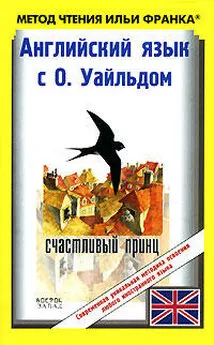
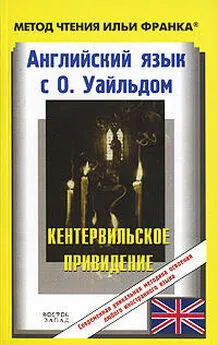
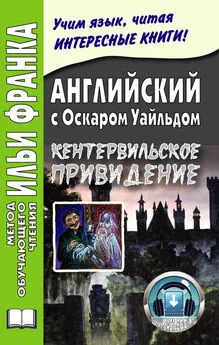
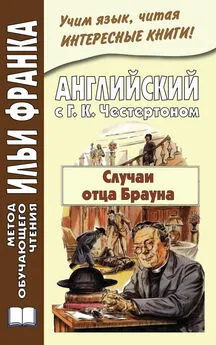
![О Генри - Принцесса и пума [The Princess and the Puma]](/books/1076182/o-genri-princessa-i-puma-the-princess-and-the-pum.webp)

